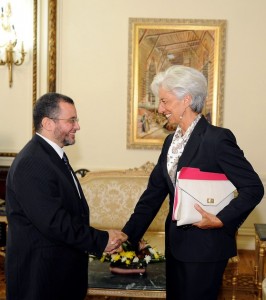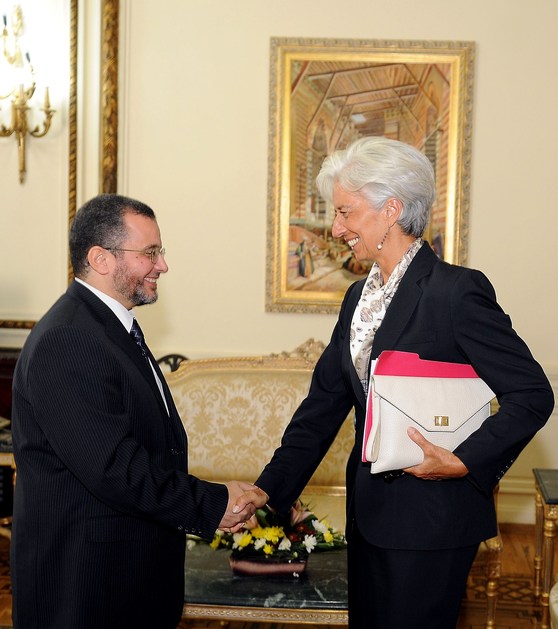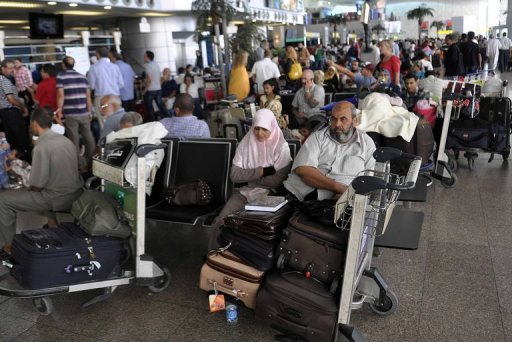
AFP PHOTO / Stringer
By: Nada Badawi
An economic reform programme is the Egyptian Cabinet’s alternative plan if the proposed $4.8bn International Monetary Fund (IMF) negotiations fail, announced Prime Minister Hesham Qandil in a press conference last Thursday.
The programme aims at reducing the country’s budget deficit from 11% to 10.4% for this fiscal year.
Economy expert Sherif El-Khereiby, however, said that “it is impossible to find an alternative economic plan immediately, but the government could try to revive the economy through tourism and security”.
He added that the IMF negotiations are likely to fail explaining that tax increases have already led to a “public outcry” when President Mohamed Morsi took drastic measures to increase taxes on a range of consumer goods on services.
Sales taxes were imposed on cement, steel, soft drinks, cigarettes, and alcohol, among many other products and services.
The President also announced tax increases last December to reduce the public deficit by increasing state revenue in order for Egypt to be eligible for the IMF loan.
El-Khereiby explained that the current government has proven to be “inept” in proposing any viable economic programmes so far.
He also advised Qandil’s government to address workers’ problems to avoid a further wave of strikes and protests, which have led to significant political turmoil since Morsi was elected president.
“A technocratic government could be a solution right now and it could be selected by members of the opposition to act as a transitional government,” El-Khereiby suggested.
Governor of the Central Bank of Egypt Hisham Ramez warned of inflation in a television statement saying: “Inflation will likely affect the majority of Egyptians if the IMF loan is to take place.”
“The IMF loan is a great opportunity for Egypt and serves as an indirect invitation for investors to invest again in Egypt,” said Mohamed Gouda, member of the Freedom and Justice Party. “It’s our strongest option right now.”
Gouda stated that a general consensus has been reached between political parties regarding the loan.
“However, few disagreements occurred between Islamic parties due to the existence of the interest rate” he said. “Unfortunately this will not change overnight.”
But Gouda trusts that the IMF negotiations will resume smoothly.
Qandil’s Cabinet is expected to invite the delegation of IMF within this month to resume negotiations over the loan.



